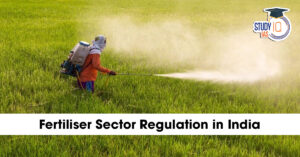Table of Contents
Cleanliness isn’t just about aesthetics—it directly impacts public health, environmental sustainability, and overall quality of life. The Environmental Performance Index (EPI) 2024, compiled by Yale and Columbia universities in collaboration with the World Economic Forum, ranks 180 countries based on indicators like air and water quality, climate policy, sanitation, and waste management.
In this article, we highlight the top 10 cleanest countries in the world in 2025, based on the latest EPI data. These nations have consistently focused on sustainable development, environmental regulation, and green technologies.
Top 10 Cleanest Countries in the World (2025)
| Rank | Country | EPI Score (2024) |
|---|---|---|
| 1 | Estonia | 75.7 |
| 2 | Luxembourg | 75.1 |
| 3 | Germany | 74.5 |
| 4 | Finland | 73.8 |
| 5 | United Kingdom | 72.6 |
| 6 | Sweden | 70.3 |
| 7 | Norway | 69.9 |
| 8 | Austria | 68.9 |
| 9 | Switzerland | 67.8 |
| 10 | Denmark | 67.7 |
Top 10 Cleanest Countries in the World (EPI 2025 Rankings)
1. Estonia (EPI Score: 75.7)
Estonia tops the list as the cleanest country worldwide in 2025. Known for its expansive forests and freshwater ecosystems, Estonia has successfully balanced nature conservation with sustainable resource use. The country emphasizes bioenergy and has made remarkable progress in improving air and water quality through robust environmental policies.
2. Luxembourg (EPI Score: 75.1)
Luxembourg ranks second due to its exceptional waste management systems and water sanitation infrastructure. Despite its small size, Luxembourg excels in reducing emissions and promoting renewable energy sources, contributing significantly to cleaner urban environments.
3. Germany (EPI Score: 74.5)
Germany continues its tradition of environmental responsibility with a strong focus on clean energy investments, strict emission standards, and advanced recycling initiatives. Its high air and water quality make it a global leader in sustainable living.
4. Finland (EPI Score: 73.8)
Finland, often cited as the happiest country, owes much of its quality of life to pristine air and water. Vast forests and lakes form the backbone of its environmental strategy, alongside eco-friendly urban planning and sustainable forestry practices.
5. United Kingdom (EPI Score: 72.6)
The UK has made significant strides in reducing carbon emissions, with policies promoting wind and solar energy, improved recycling, and expanding public green spaces. Its stringent environmental laws keep pollution levels low, enhancing public health.
6. Sweden (EPI Score: 70.3)
Sweden’s clean energy largely comes from hydropower and wind. The nation’s strict pollution control measures and innovative environmental technology solutions place it firmly among the cleanest countries globally.
7. Norway (EPI Score: 69.9)
Norway benefits from nearly universal access to clean drinking water and sanitation. Its reliance on hydropower and progressive emission reduction targets help preserve its natural beauty and marine ecosystems.
8. Austria (EPI Score: 68.9)
Austria’s commitment to sustainable agriculture, chemical regulation, and green urban transport contributes to its clean air and water. Its well-maintained natural landscapes support biodiversity and eco-tourism.
9. Switzerland (EPI Score: 67.8)
Famous for its pristine mountains and lakes, Switzerland excels in waste management and water treatment. It promotes green technologies extensively, maintaining its status as one of the world’s cleanest countries.
10. Denmark (EPI Score: 67.7)
Denmark rounds off the top 10 with rigorous wastewater management and low greenhouse gas emissions. Its leadership in wind energy and environmental regulations make it a model for sustainable development.
What is the Environmental Performance Index (EPI)?
The Environmental Performance Index (EPI) is a method developed by Yale and Columbia universities in partnership with the World Economic Forum (WEF). It assesses the environmental health and ecosystem vitality of 180 countries using 40 indicators across 11 categories. These include air pollution, water quality, waste management, biodiversity, climate change mitigation, and more.
The latest EPI 2024 report highlights which countries are leading the way in environmental sustainability and cleanliness, making them ideal models for others to follow.


 Fertiliser Sector Regulation in India: I...
Fertiliser Sector Regulation in India: I...
 New Gene Editing Method: Future of Perso...
New Gene Editing Method: Future of Perso...
 Is India’s Federal Structure Under Str...
Is India’s Federal Structure Under Str...




















